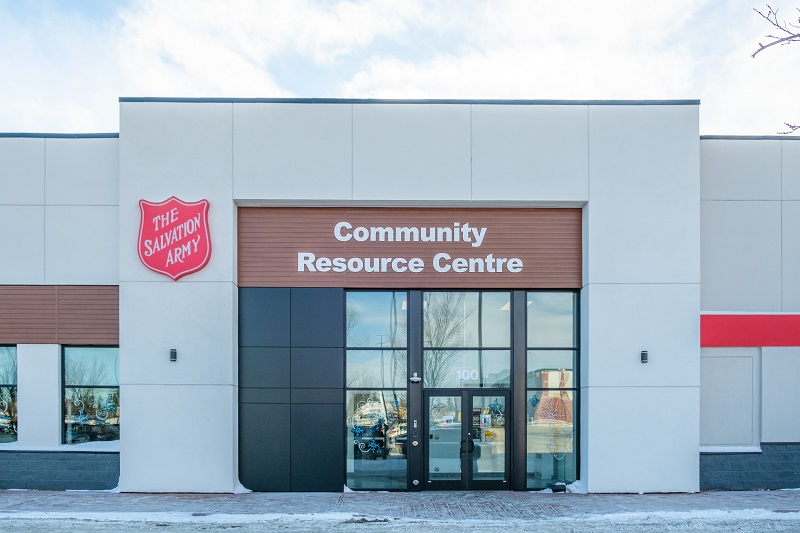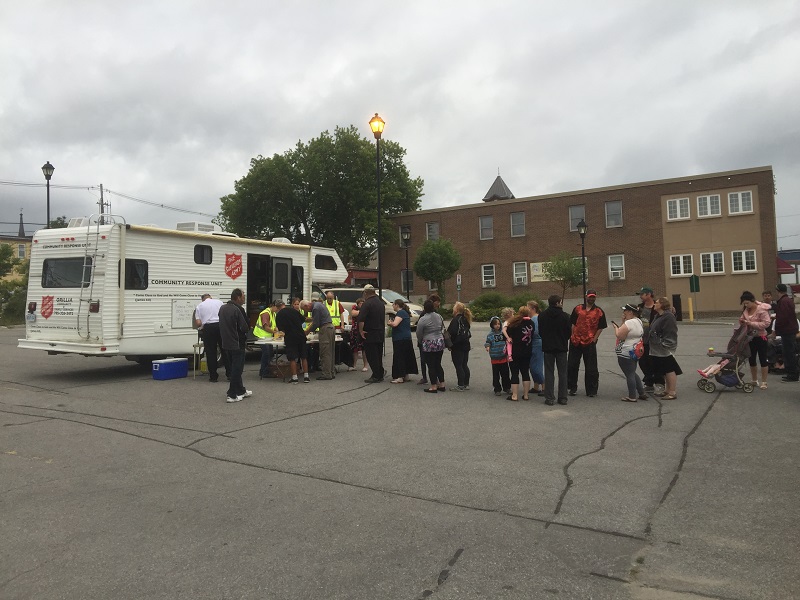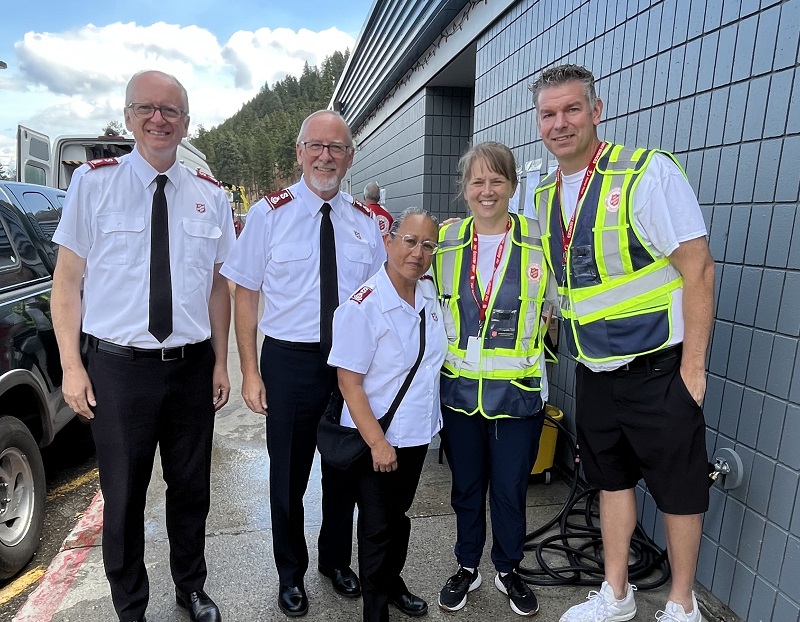Salvation Army Assessors in Pakistan Seek to Help People Who ‘Have No Hope’ (Update 10 August)
Salvation Army Assessors in Pakistan Seek to Help People Who ‘Have No Hope’ (Update 10 August)
THE Salvation Army in Pakistan continues to put in place preparations for a large-scale response to the floods that have affected more than 14 million people.
Andrew Lee, Chief Accountant for The Salvation Army in Pakistan, is a member of the assessment team that is looking to see where The Salvation Army’s help is most urgently needed.
He writes that one of the first places the team went to was a relief camp at St Mary’s school in Risalapur. About 120 families are living in the shelter that has been set up in the school, predominantly Christians but also including Muslims and Hindus. Most have come from Syce Mandi where the houses were totally destroyed.
‘I saw a lot of sad and depressed faces,’ he says. ‘Talking to some of the people there is no sense of hope at all. I felt desolate myself and, feeling the need to do something, we came back later with a box of milk powder (there is a shortage of some food items) and sweets, which seemed to cheer people up. It’s a token gesture, I know, but for me it was worth it seeing their faces brighten for a little bit.
‘The next stop was a visit to another school housing about 30 families in Nowshera. Here we met the OM medical organisation that has been going to various relief camps with medicines and vaccinations. It is great to see the various organisations contributing to help the millions of people affected.
‘While the heavy rains continued I talked to three widows with quite a few children living in one of the classrooms. More sadness and hopelessness was being expressed by them. Because they do not have husbands to earn a living and having lost all their possessions, there is little chance of rebuilding their lives without assistance.
‘We headed into Charsadda, where refugees had pitched tents along the roads. Trucks carrying flat bread (chapattis) were being mobbed and people started fighting to get closer (cars were also mobbed when they stopped to help). Going into the main town, we were guided through the back streets toward the river bank and shown a few damaged houses.’
The team then headed towards the river, where the worst of the flooding had taken place. Andrew says: ‘At times the mud was so thick that our boots were stuck. As I walked along the streets, residents still living in their badly damaged homes were surprised to see me. During translated conversations with the locals, it seems that no officials or non-governmental organisations (NGOs) had come this way in the past nine days. I was the first to visit them and again I felt sad that I could not at this time give any assistance except by being there.
‘A father was carrying two children through the knee high water and his daughter let slip one of her shoes. As it floated, I managed to retrieve it and put it back on. A small random act of kindness put a smile on a few faces.
‘Coming within about 30 metres of the river, we finally had to stop as the water level was rising again. As I made my way through flooded alleyways, houses were either collapsed or full of mud or badly damaged. One owner showed me his two-storey house, and told me the waters had reached the second floor. His family sat on the edge of the roofing for about two days until the waters receded, fearing that the house would collapse and they would be thrown into the street. All their possessions were damaged by mud and water.
‘I feel sad that the flood has affected 14 million people and I guess upset that I can’t be more helpful. Realistically we can’t help every single one of them. With what resources we have, we will try to help as much as possible in coordination with the government and the various NGOs. Although those I talk to have no hope, I think maybe that, with goodwill and neighbourly cooperation, Pakistanis can rebuild their lives.’
Captain Washington Daniel (leader of The Salvation Army’s Islamabad Division) adds: ‘We met with the Bishop of Peshawar’s team and they welcomed us. They are very thankful for The Salvation Army’s visit and our cooperation. In this meeting we discussed how we can help the people who have lost so much.
‘They gave us a list of people in different areas in order to avoid duplication in the distribution of assistance. I said that The Salvation Army will attempt to provide utensils (pots, pans, dishes), quilts, pillows, foam mattresses and gas cylinder burners. We have identified 3,000 families in need of assistance from the list we were given.’
The captain also met with a government representative, who offered his support.



